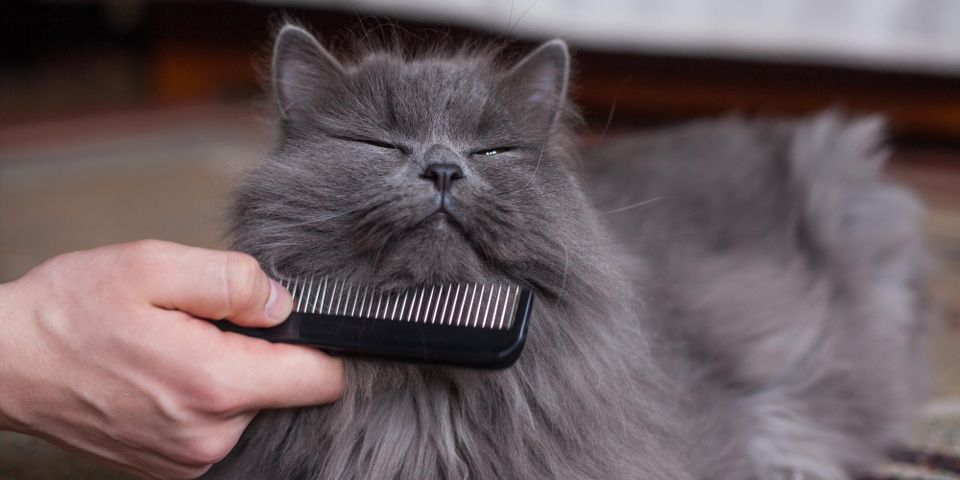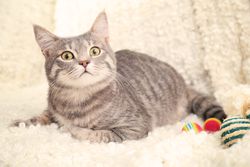
If you’ve ever owned a cat, you’re probably well aware of hairballs. Cats regurgitate hairballs as a result of their grooming practice, so they’re very common. Usually, there is no cause for concern or need for a trip to the pet clinic, but symptoms can often be uncomfortable for the cat to experience. Take the following precautionary steps to help prevent hairballs in your cat.
What Are Hairballs?
Hairballs are tangled pieces of a cat’s fur that gets swallowed and then thrown up. As cats groom themselves, the hair is swallowed because of tiny hook-like structures on the cat’s tongue that capture excess hair. The hair is most commonly processed by the digestive tract and excreted through the cat’s feces, but it’s not uncommon for the hair to stay in the stomach and then be vomited out. Hairballs are cylindrical in shape, as opposed to the commonly-thought round “ball” shape, and this is because of the tube-like structure of the esophagus.
What Are the Causes of Hairballs in Cats?
 A cat’s digestive system is designed to process their fur, so hairballs are a natural occurrence. They can be caused by an increased amount of hair ingested, which may be caused by over-grooming due to stress, skin irritation, or seasonal shedding. If your cat has trouble passing hair through their gastrointestinal tract, hairballs may be a common occurrence as well. This could be due to a more serious condition like inflammatory bowel disease, ulcers, or neoplasia.
A cat’s digestive system is designed to process their fur, so hairballs are a natural occurrence. They can be caused by an increased amount of hair ingested, which may be caused by over-grooming due to stress, skin irritation, or seasonal shedding. If your cat has trouble passing hair through their gastrointestinal tract, hairballs may be a common occurrence as well. This could be due to a more serious condition like inflammatory bowel disease, ulcers, or neoplasia.
What Are the Signs & Symptoms?
Hairballs can be very uncomfortable for cats to expel. Some common symptoms include:
- Lethargy
- Lack of appetite
- Vomiting, gagging, retching, or hacking
- Diarrhea
- Constipation
How Can You Prevent Your Cat From Getting Them?
Cat owners should regularly brush their cats to remove any loose fur. The frequency should vary depending on the length of your cat’s fur. Usually, daily grooming will help keep their hair tangle-free and healthy and stimulate their skin, which is an added benefit. Since some cats obsessively groom, try to encourage a different activity like playing with a toy.
In some cases, a laxative or hairball prevention product can be helpful to assist the passing of a hairball through the digestive tract. These can either come in a cream or pill form. Next time you’re at the pet clinic, ask the veterinarian for a recommendation.
If your cat is experiencing discomfort passing a hairball or is in need of care, visit the trusted professionals at Cat & Dog Hospital of Colombia to take care of your pet. This Colombia, MD, pet clinic offers a wide selection of medical, surgical, and dental care services to make sure your pet is taken care of. Whether your pet needs a general health procedure, vaccination, or microchipping, the professionals at this pet clinic can help. Schedule an appointment by calling (410) 995-6880 or view their website for a complete list of services.
About the Business
(14 reviews)
Have a question? Ask the experts!
Send your question

